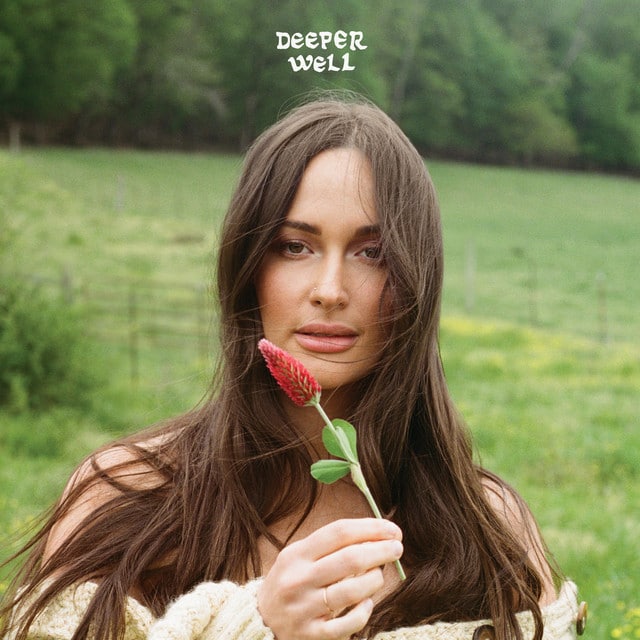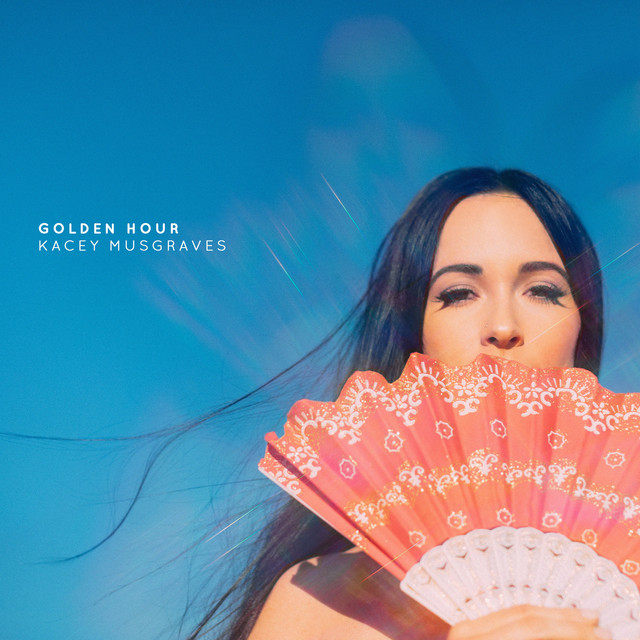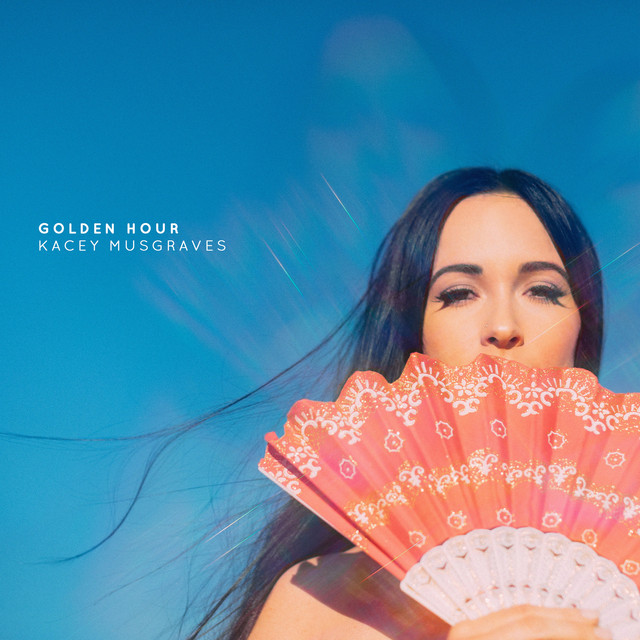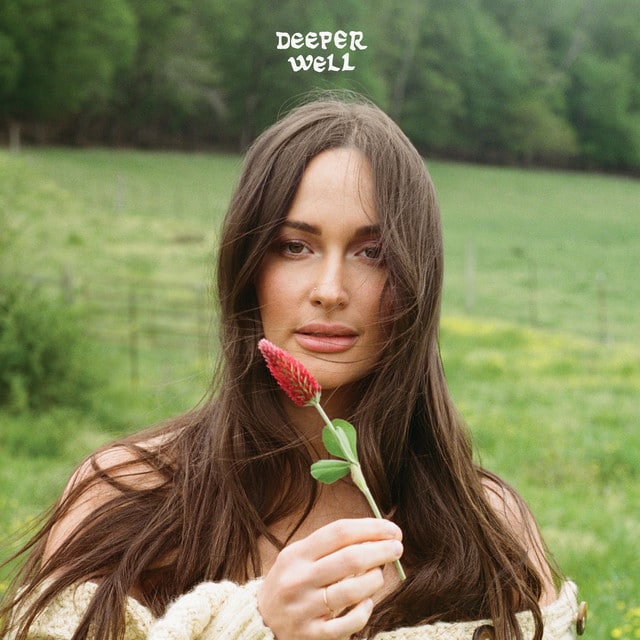Released: 2024
Label: Interscope Records/MCA Nashville
Let’s talk about Kacey Musgraves’ iconic album ‘Deeper Well’, an eclectic masterpiece released in 2024 under the labels Interscope Records and MCA Nashville. This album, a heady mix of lush melodies and poignant lyrics, embodied a significant evolution in Musgraves’ musical journey. It served a cornucopia of sounds, blending her country roots with a more experimental pop edge, manifesting another facet of her diverse artistic persona.
From introspective soul-searching in ‘Cardinal’ to a heartache so profound in ‘Too Good to be True’, this album had it all. With tracks like ‘Moving Out’ and ‘Giver/Taker,’ she traverses through dense thematic territories, tackling love, existentialism, and everything in between. She further showcased her lyrical maturity with songs like ‘The Architect’ and ‘Lonely Millionaire’, revealing a newfound depth of self-awareness.
Indeed, ‘Deeper Well’ is not just an album—it’s a narrative, a collection of Musgraves’ reflections ingeniously strung together with her melodious voice. So let’s get into it. From ‘Cardinal’ to ‘Nothing to be Scared Of’, here we are breaking down the album “Deeper Well” by “Kacey Musgraves”.
1 Cardinal
The refrain, “Cardinal, are you bringin’ me a message from the other side? Are you tellin’ me I’m on somebody’s mind?” encapsulates Musgraves’ struggle with the transitory nature of mortality. The lyrics paint a poignant picture of an individual grappling with the sudden departure of a dear friend. The cardinal in the song symbolizes an otherworldly messenger providing solace and a comforting thought that the departed has crossed over but still remembers. The repetition of the question underlines the sense of yearning and vulnerability, making the song a touching meditation on loss, grief, and the nature of remembrance. Musgraves’ thematic exploration resonates with anyone who has ever experienced the pain of abrupt goodbyes.
2 Deeper Well
The lyrics, honest and brave, pack a punch with memorable lines such as “I’ve gotten older, now I know, How to take care of myself.” It’s her Saturn return period, her time of upheaval and re-evaluation of life’s purpose. The song traces her journey from a carefree cannabis enthusiast to a woman who has found her “deeper well,” a place of profound understanding and calmness. It’s a proclamation, an anthem for those navigating their way through life, learning to understand when to let go and when to lean in. Musgraves makes it clear—it’s essential to remove negative energy from your life in the pursuit of self-protection. Ultimately, “Deeper Well” is a testament to self-discovery and the power of introspection in personal growth.
3 Too Good to be True
The standout line, “Please don’t make me regret opening up that part of myself that I’ve been scared to give again. Be good to me, and I’ll be good to you,” echoes the universal theme of trepidation in the face of budding love. It’s a reflection of the fear of getting too swept up, a sentiment perfectly captured in “I don’t wanna slow down.” She yearns for an authentic connection that won’t shatter her newfound joy, vocalizing the common fear that something so extraordinarily beautiful might just be “too good to be true.” It’s an ode to cautious optimism, to the intimate moments, to making breakfast, making love – embodying the paradox of desiring a love that feels almost unreal, yet craving its realness.
4 Moving Out
The symbolic ‘big tree’ and its fallen limb is a testament of life’s unpredictability, mirrored by the risk and reward in their own love story. The haunting line, “even though I feel excited, I’m kind of sad to leave,” encapsulates the paradox of embracing change – a mix of anticipation, loss, and melancholy. It’s a poignant reminder of the cyclical rhythms of life, love, and even seasons – “now that autumn’s moving in, we’re moving out.”
5 Giver / Taker
The lyric “I would give you everything that you wanted/And I would never ask for any of it back/And if I could take only as much as I needed/I would take everything you had” rides the fine line between altruistic sacrifice and self-preservation. Musgraves sings about her struggle with wanting complete devotion yet fearing it may be too substantial for her to handle, as she humbly admits, “I need all your love, not just one piece/Hopin’ that it ain’t too much for me to ask.” The song dives into the complex dynamics of love and the often paradoxical dynamics of giver/taker relationships, serving as a striking commentary on emotional vulnerability in romantic relationships.
6 Sway
Yet, there’s hope intertwined with this struggle. The song communicates her desire to unlearn control, to surrender, and sway with the unpredictability of life. The refrain – “Maybe one day, I’ll learn how to sway” – reiterates Musgraves’ contemplation on growing through life’s uncertainties. “Sway” injects a distinct raw emotionality into ‘Deeper Well’, and stands as an introspective anthem, resonating with anyone grappling with their vulnerabilities.
7 Dinner with Friends
It’s a sincere celebration of the mundane and the extraordinary; the intimacy of shared meals in unfamiliar cities, the delight of watching a friend’s face light up at a thoughtful gift. “The face that somebody makes when you give ’em a gift” she sings, and we’re right there with her, basking in that simple joy. The lyrics also nod to her Texan roots, her love for the sky, horses, and canines – though decidedly, not its laws. And then there’s love, described through sweet idiosyncrasies like “The cute way he mispronounces certain words” and “The smell of his clothes”. It’s a swirled kaleidoscope of beautiful, personal detail, capturing all the “things I would miss from the other side”, with Musgraves’ voice – evocative and clear – gilding each scene with an emotional resonance that lingers.
8 Heart of the Woods
Kacey’s lyrics rest on the metaphorical antecedent of a hidden world beneath the ground. This ‘neighborhood’ comes alive through an extensive network, a celestial echo of unseen communication “communicating through the roots of the trees”. The song seems to call out the inherent camaraderie in nature and our own, “It’s in our nature to look out for each other”. In the heart of the woods, care and concern between unseen connections ensue. “When there’s danger, we’ll take care of each other”. Reflecting back on the poignant theme of her album ‘Deeper Well’, Musgraves channels a sense of unity and interconnectedness, a kinship thriving in secrecy. The lyrics serve as a poetic testimony to our shared resilience, an inherent cross-species bond encapsulated in the “heart of the woods”.
9 Jade Green
“Like the bracelet that you bought me, I want you on my arm,” she croons, drawing poignant parallels between the article of adornment and her yearning for companionship. Hold up, though – this isn’t just a sappy love song. Musgraves delicately broaches themes of self-care and healing echoed in the line, “Come into my power and heal the broken parts that I carry.” That’s Musgraves for y’all – always serving introspection with a side of romantic nostalgia. And let’s not ignore the subtlety with which she addresses anxiety, “I can’t help it, I get anxious and every time we part, I say a little prayer to drive away the dark.” An emblem of strength, protection, and quiet resilience, “Jade Green” is a testament to her lyrical prowess.
10 The Architect
Skillfully wielding metaphors of nature – the apple, the canyon, the mountain – Musgraves invites us to contemplate the meticulously crafted and seemingly fortuitous aspects of our world. The poignant line “Can I speak to the Architect?” encapsulates the longing for answers, the desire to understand our role in the vast cosmic design. As the song unfurls, Musgraves explores personal dynamics, blending introspection and existentialism with melodic ease. The verse “I thought that I was too broken / And maybe too hard to love” reveals a resonant vulnerability, while questioning destiny versus chaos. Through each lyric, Musgraves challenges us to look beyond surface truisms, encouraging a more profound reflection on life and agency.
11 Lonely Millionaire
The lyrical punch – “Who wants to be a lonely millionaire? Coming home, ain’t no one there” – is a terse summation of the poignant tale she weaves. In this narrative, Musgraves is relentless in her exposure of the fallacy of fortune, where a gold watch cannot redeem lost moments, and king-sized beds become cold and desolate landscapes without companionship. The haunting repetition of “la-la-la-la,” a seemingly dismissive interjection, gains a deeper, mournful resonance in its context. Above all, “All I want is you” is a heartfelt, human desire, a touch of vulnerability that underscores the futility of “money and the diamonds and the things that shine” in procuring genuine bliss. Illusory opulence, she appears to assert, is no substitute for emotional abundance.
12 Heaven Is
This paradise isn’t located in some distant corner of the cosmos, it’s right here, grounded in the earthly and immediate. Musgraves sings “No tears to cry, and nothing to mourn / Wearin’ your shirt so tattered and torn / Lyin’ in your arms, so safe and warm / That’s what heaven is.” This verse isn’t just about sentimentality, it’s about the comfort found in everyday moments of love, presenting a profound antidote to the grandiose visions of afterlife often portrayed. She even rejects the allure of “money or fame”, a sharp contrast to much of mainstream pop culture. And despite the uncertainty of what comes after this life, she finds solace in the present, underscoring, “if all I have is the light in your eyes / That’s what heaven is”. It’s a powerful message about appreciating the moment and the people we cherish.
13 Anime Eyes
The rich imagery in the lyrics represent love in its purest form, “The moon is hanging over us, the wind is in the trees / We’ve got nowhere to be, do we, baby?” Unapologetically sentimental, Musgraves embodies the heart of an impassioned lover, likening her bewitched gaze to the heightened, fantastical world of anime, “A million little stars bursting into hearts in my anime eyes.” Engaging in a deep and vibrant expression of love, she even boldly claims, “Sailor Moon’s got nothing on me,” a cheeky reference to the popular Japanese anime. Through this track, Musgraves delicately navigates the unchartered terrains of love, presenting a beautiful exploration of emotional connection, and reaffirming her position as a poet of the heart in the realm of pop music.
14 Nothing to be Scared Of
She skillfully paints a picture of life in the West Side while wrestling with her inner demons, reflected in the lines, “I’ve got my own patterns maybe, I can stop them / Demons in your mirror together, we’ll escape them.” Musgraves’ lyrics touch on the desperate hope for mutual understanding, beautifully encapsulated in “You say I’m the only one you wanna give your love / There’s nothing to be scared of.” The track’s chorus serves as a bold declaration of safety in a relationship, a disarmingly sweet affirmation of reciprocal affection. The tune resonates with the authenticity of Musgraves’ songwriting, where the lyrics reveal an artist fully in tune with herself, exploring her own psyche while inviting listeners into her introspective journey.








